Ohio To Appeal Sixth Circuit Early Voting Ruling To Supreme Court
Ohio’s Secretary of State Jon Husted has announced that the state will be appealing last week’s decision on early voting to the Supreme Court:
COLUMBUS, Ohio (AP) — Ohio’s election chief said Tuesday he will appeal a ruling by a federal court that reinstates the final three early voting days in the battleground state.
Secretary of State Jon Husted is asking the U.S. Supreme Court to decide whether the state Legislature or federal courts should set Ohio election laws.
Husted called Friday’s decision by the 6th U.S. Circuit Court of Appeals “an unprecedented intrusion” into how states run elections. The court returned discretion to set hours on the final three days to local boards of elections.
“As a swing state, we in Ohio expect to be held to a high standard and level of scrutiny when it comes to elections,” Husted, a Republican, said in a statement. “However, it’s troubling that the federal courts have failed to recognize that there isn’t another state in the union which can claim Ohio’s broad menu of voting options and opportunity to vote.”
With only 28 days left until Election Day, and less than that until Ohio counties would have to comply with the Sixth Circuit’s Injunction, it’s hard to see how this is going to work out for the state. There’s obviously no enough time for the Court to hear the case on appeal, so the matter would have to come down to a decision on whether or not the injunction should be stayed pending appeal. Even that, however, requires that the Court even agree to accept the case for appeal to begin with, and that they do so in sufficient time for both sides to fully brief the argument on whether or not the injunction should be stayed. My guess is that the Court doesn’t accept the case.

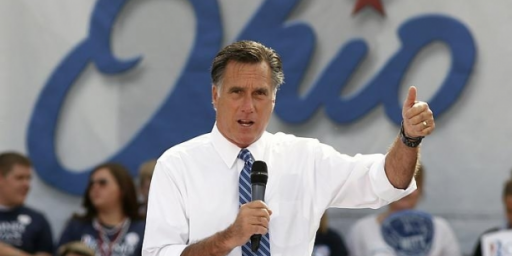
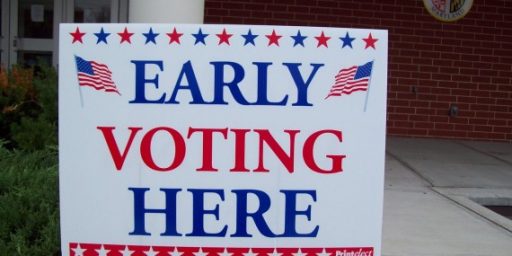
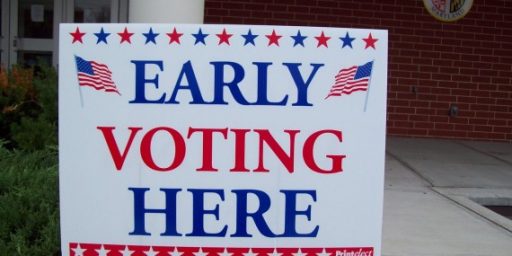
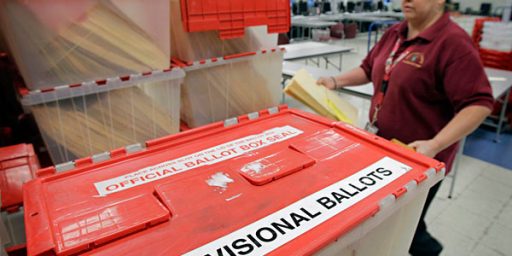
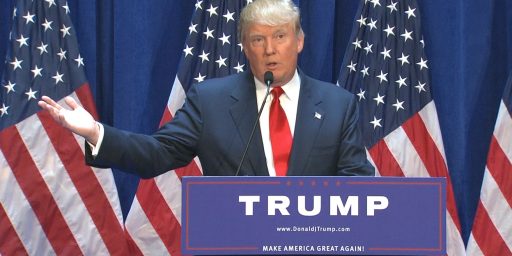
Holy hell, is that really an AP article?
That’s right. That’s exactly how I would have said it. Shit, if and when this case gets to the SCOTUS that’s probably how Scalia, Thomas and Alito will phrase it. Normally by the time you get to the 2nd graf of an AP article they’ve already beaten you to death with liberal Democrat talking points. But that article plays in straight. Am I in bizarro land? Are dogs and cats now living together in harmony?
In any event, the thing that amazes me about this Ohio kerfuffle is that I’m not sure the left even grasps the inherent irony of it all. For 40-plus years the left has been screaming at us, in connection with race preferences, gun control, rent control, and other items, that it’s OK for the government to treat people differently if there’s a “compelling” reason to do so. But now, however, a state wants to cut military members some slack, without regard to race, gender, creed, etc., and the left goes into high dudgeon mode and throws a hissy fit. Great. All part and parcel of the big slide.
@Tsar Nicholas:
Can you elucidate for us the compelling reason to strip all non-military citizens of in-person early voting privileges?
@Tsar Nicholas: So, all the hoops certain states have to jump through when they change their election laws so the feds can determine if they’re inherently racially biased; those have been a Constitutional Crisis for the last several decades also, right?
When states do things that are patently biased, then yes – the fed comes in. And especially in cases like this, when – and Doug, please correct me if I missate, but IIRC – the Constitution, case laws, and precedents are all pretty much in agreement that in any dispute about eligibility, etc, the error must always be made on the side of possibly allowing more people to vote than accidentally removing the ability of proper voters to cast ballots.
I agree with Doug – they’re not likely to take the case, and even if they do, I can’t see them pushing it through in time before this election cycle.
If there aren’t four votes to hear it I’ll eat my hat.
@Tsar Nicholas:
As I’ve said in the posts I’ve written about this topic, I think Ohio’s law giving an early voting preference to military voters is clearly unconstitutional.
@rudderpedals:
There may be four votes to hear the case, but that doesn’t mean there will be four votes to agree to rule on the injunction itself. The way SCOTUS handles these things, those are technically two different issues.
But, yea, I would really be surprised if SCOTUS interrupts its busy season for a case like this.
How many times have people expressed confidence that the court would exercise restraint, only to eat their hat later on?
Bush v Gore: it’s a state issue–surely the Rehnquist court wouldn’t trample over Florida’s sovereignty?
Obamacare: Surely there wouldn’t be the votes to wholly void a monumental (for good or ill) act of Congress based on a novel legal theory dreamed up by a libertarian gadfly? (yeah it didn’t happen, but there were initially five votes and ultimately four)
@Geek, Esq.: Yes, Jenos, those on the left are constantly surprised that the right wing members of the court have no respect for their office, and choose to express their political preferences instead of practicing, you know, justice. So what’s your point, sock puppet?